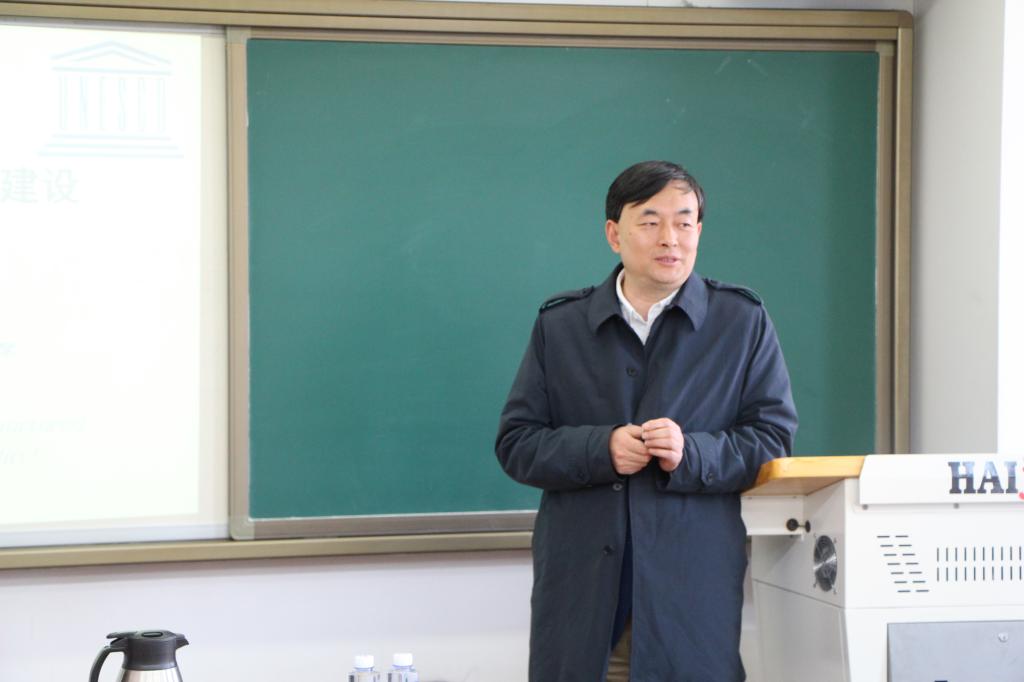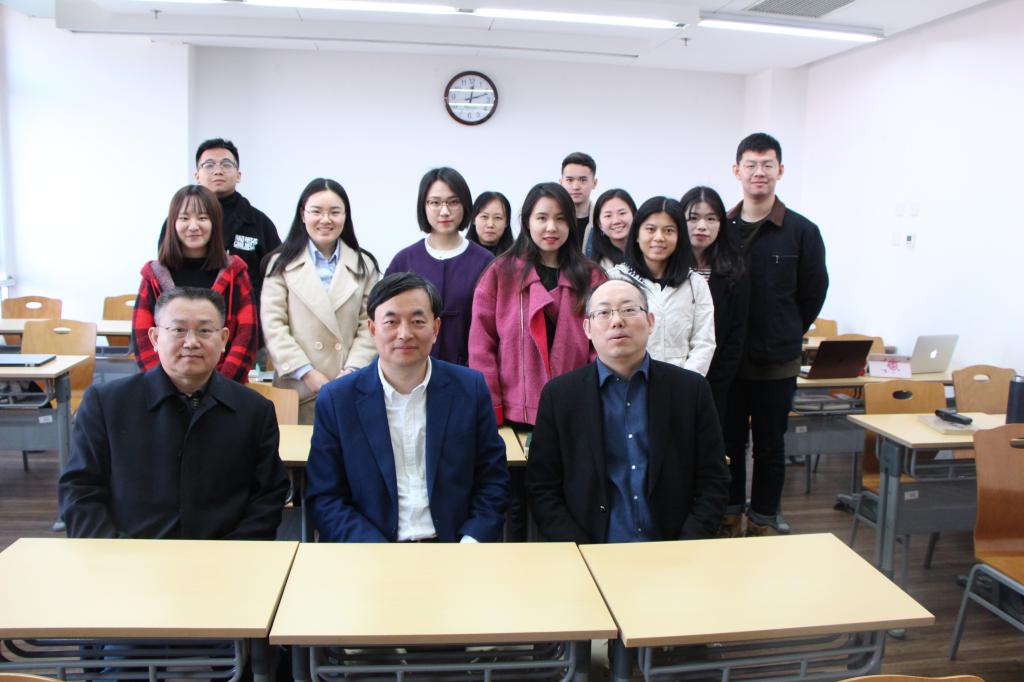At 10 am on April 3, 2019, the 355th Global Human Rights Forum series was held at the A209, Research Building, College Road, China University of Political Science and Law. Professor Liu Cheng, the current director of the United Nations Educational Group and the Chair of the Institute of Peace Studies, gave a wonderful lecture entitled "Peace Building in a Globalized World" to postgraduate students of the Human Rights Institute.

First of all, Professor Liu introduced four kinds of relationship modes between religions, ethnic groups and cultures, including the single, diverse, interactive and integrated models. The single mode means that a subject is extremely strong and other subjects succumb to it. Diversified mode means that the development of each subject is similar, and this stage is prone to wars and conflicts. The interactive mode means that when there is a contradiction, each subject learns, studies and solves problems. The mode of integration means that culture, religion, and nation still exist, but there is a higher economic, ecological, and network community above them. The above four modes reflect the development trend of human society from unity to diversity and finally to consistency. In the context of globalization, dialogue is an important model for cooperation between differenthuman societies.
Then, Professor Liu took the United Nations Ten-Year Plan for Peace and Non-Violence for the Children of the World as an example and put forward the theory of justice and peace: if you want peace, you must achieve it in a peaceful way. A culture of peace can only be achieved in a non-violent manner, and its goals and paths are consistent. Then, Professor Liu further elaborated on the power of “achieving” and the power of “transcendence”. The former refers to the life energy, potential and motivation that are free of violence and are used to maintain one's life, achieve goals and achieve life value. The latter refers to the inclusion of violence, with excessive attack power, exceeding the necessary force for survival. The study of human rights is to explore how to transform the power of "transcendence" into the power of "achieving." In addition, Professor Liu also explained in detail the violent triangle consisting of “direct violence”, “cultural violence” and “structural violence”, as well as the concept of negative peace and positive peace.
Finally, Professor Liu published his vision of world peace. To the road to peace, there are different stages of understanding, tolerance, acceptance, cherish, and unity. He hopes that there will be an irreversible time node, from which point there will be no more violence in the world. This is called the “taboo zone model”. In the questioning session, Professor Liu patiently answered the questions that “ How do young people understand religion when it becomes secularized in the context of globalization?” and “Whether there is a drawback of the generalization ofhuman rights in the concept of the right to peace?”
The lecture was successfully concluded with the enthusiastic applause of the students.

Written by Jiasheng HUANG